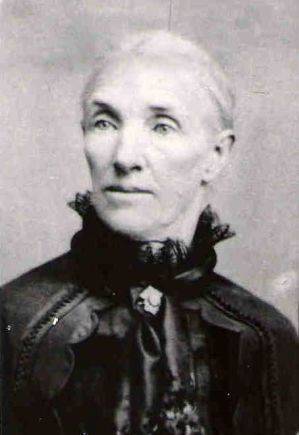
 .
.
Mary Elizabeth Cox, daughter of Jonathan Upham Cox and Lucinda Blood Cox was born on the 15th of December, 1826 in Oswego, Tioga County, New York
My father was a miller, but the last two years of his life he was almost an invalid. There was a family of twelve children. Father died when I was a little girl three years old and my brother Jonathan, was born six months after father’s death, which occurred in April, 1830. William, my oldest brother was twenty years of age and on his young shoulders devolved nearly the whole care of the family, but as he had the care of the mill so much, it was comparatively easy for him with the help of his brothers next younger than he, Charles, eighteen, and Walter, sixteen, both of whom looked to William for counsel at all times. We were all taught obedience and I never heard jars among the boys, such as one might naturally expect among a large number. Mother was never well after father died, though she lived eight years.
When I was 6 years old, William thought best to move to the northern part of Ohio so that he could get land to farm and have employment for the younger boys, and he accordingly went to Nelson, Portage Co., Ohio, and secured eighty acres of woodland covered with heavy timber of all kinds and with a thick growth of underbrush. He then came back and took mother and five small children and came on the canal to Buffalo, then across Lake Erie to Plainsville. A team met us there and we soon passed thirty miles arriving at our new home – but with a change! A log house in the center of a little clearing, most of the brush and timber being cut down and burned. Fences made of split rails laid one upon the other enclosed the place. It was many days before it seemed like home, but we children soon found delights in the new home that compensated for all we had left behind. Mother never gained in health, but grew worse until she died. Then we were left to shift for ourselves. The three oldest boys were married and homes found for Jonathan and me. The rest were at work where they had a chance and the family home was sold. After mother’s expenses were taken out, the proceeds were divided among the family without a jar that I ever heard of. Walter was married to Emeline Whiting (sister of Edwin Whiting) about two years before mother died, and as the boys began to leave home about that time, we were seldom together. William married Sarah Ann Beebe before Walter was married, I went to live with a Mr. Barber in Nelson, Ohio and Jonathan with a Mr. Rate in Mindham.
Mother died December, 1838, and was buried in Nelson. Walter Cox and Edwin Whiting, with their families and Amos Cox, then 16 years old, had gone to Missouri, at that time the gathering place of the Latter Day Saints (Mormons). None of us had ever heard the Gospel only as we heard of ‘old Joe Smith and his gold Bible’. Everyone thought Mormonism would soon be a thing of the past and forgotten and we were surprised to learn that Walter and Emeline, also Edwin and Elizabeth had joined the Mormon Church in Missouri, and they were soon after driven with the rest of the Saints from the state and settled in Lima, Illinois. They remained there until 1845 when the Saints were driven out. I lived with Mr. Barber two years, then went and stayed with my brother, Charles, in Garretsville, Ohio. Soon after a Mr. Davis in Akron, Ohio was looking for a girl to help take care of his two little girls, so I went home with him and stayed two years. I was never mistreated by anyone, but was often lonely, being away from all near relatives and especially sister Harriet, whom I almost worshipped. It was also a great trial being separated from my little brother, Jonathan.
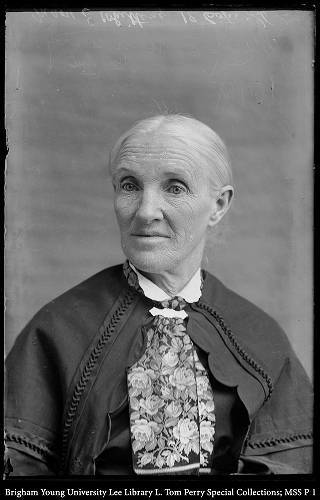
I always loved books and as I learned very easily was encouraged in my efforts to get an education. As a consequence, at 14 years of ago I was far ahead of most children at that age. An occasional chance to attend a select school and one term at an academy were all the chances I ever had except the common schools. In the summer of 1841 I presented myself as a candidate for a teacher, and was given a certificate for teaching all the common branches of the English language and taught four summers in Ohio.
In 1844 I came West with my brother, WaIter, my sister and her husband Charles Jackson, to Illinois. In August, soon after the martyrdom of Joseph and Hyrum Smith, the mobbing commenced and all the Saints were compelled to go to Nauvoo, Illinois after having their homes burned and much other property destroyed. I had taught three terms in Lima, Illinois, and then went west with my brothers and their families to Nauvoo, but I had been baptized in April 1845 by father Morley in the Mississippi River in Nauvoo, being there to attend the April conference.
That winter was a busy one for the people as they had previously agreed to leave the state within a year, so as we were all unprepared, it meant business for us. In the meantime our beautiful temple was nearing completion and many were looking to receive great blessings there. It was there I entered into the celestial order of marriage with Edwin Whiting and his wives Elizabeth and Almira, Jan 27, 1846, and have never regretted it, knowing as I do that the Lord has blessed us together. We moved from Nauvoo in April of the same year and came west as far as Mt. Pisgah, Iowa, very many of the Saints having gone through the state and built up what was known as Winter Quarters where the town of Florence now stands. We were not well enough prepared for the journey so we stopped and went to plowing and planting. The Whitings and Coxes put up a chair factory and made chairs which they hauled back to Quincy, where they found ready market for them. We stayed at Pisgah two years, during which time many died with chills and fever. Among them were Father and Mother Whiting, also one of Elizabeth’s little girls, Emily four years old, and two of my brother Walter’s little girls. The rest of us were all sick for months. Some of the time there were not well ones enough to give the sick a drink. Those were times of trial, yet, we felt we were remembered by our Heavenly Father and had many seasons of rejoicing. I taught two terms of school in Pisgah and Albert, my oldest son was born there December 9, 1849.
In April 1949, we started on the great move of all moves toward the great Salt Lake of the then unexplored regions of Mexico. We were about three months reaching the Elkhorn and were organized in Brother George A. Smith’s fifty, Brother Benson being over the one hundred and he had gone ahead for it was not thought best for more than fifty to travel together on account of firewood and other conveniences, and fifty were considered safe from Indians. Of that long and tedious journey, volumes might be written. In our camp we had one stampede of cattle. It was after about three weeks of travel and was most terrifying, happening about one o’clock in the morning and father was on guard, but no one was hurt so we were all comforted although eight or ten head of our cattle were lost. We saw many herds of cattle, but our worst and most trying experience was on the Sweetwater. After reaching the Black Hills we were snowed in for about three days and many of the best cattle in the company died. Father counted nine head in one little bunch of willows. There were only enough teams left to move the wagons to a new camp about a mile or two ahead, but in a day or two we met the teams sent out from Salt Lake to meet us.
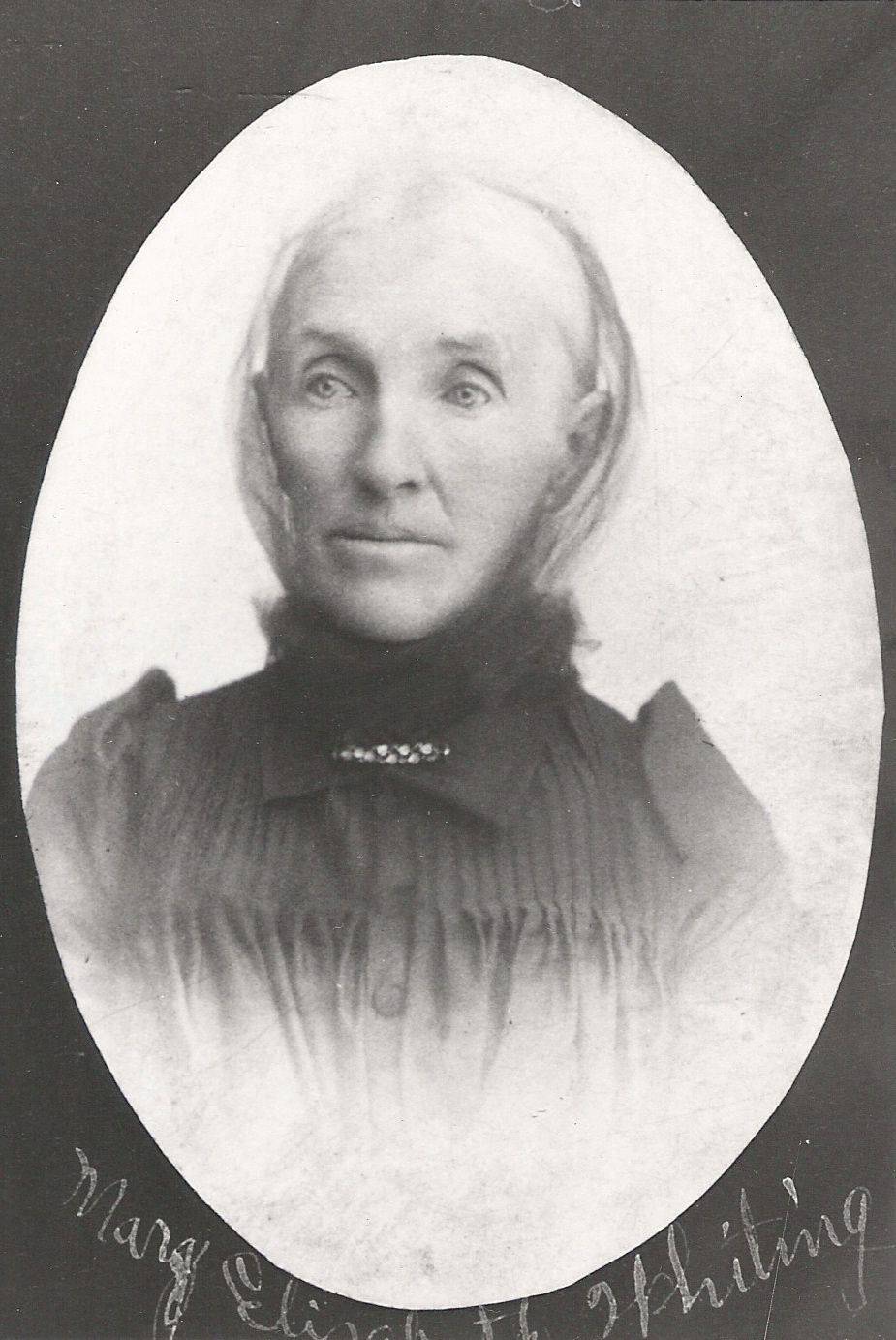
We arrived in the city October 28, 1849 and it was one of the prettiest places I ever saw. The young shade trees on the sidewalk were yet green and many young orchards all quite green made a picture of loveliness to us weary travelers never to be forgotten. But we were soon to leave as we were chosen by Father Morley to go and help form a settlement in Sanpete County, which had been located at Manti and it was thought best to go so as to be ready to start work in the spring. It took us three weeks to reach Manti and it was the first of December and there were so many discouragements. My husband and brother Orville Cox, went to Salt Lake on snowshoes to report starving conditions of the Saints. About half of our little company returned to the city and the long snowy dreary winter was endured by those who remained with the help of the Lord. We had many seasons of enjoyment in various ways and our prayer meetings were held every week. Sunday evenings and Thursdays were well attended. Father put up a foot lathe and he and William, now 15 years old, hauled timber from the canyon on a handsled and he made one hundred chairs with rush bottoms, and in April took them to the city and sold them for grain and other things for the family’s use. The long cold winter had consumed all our supplies and most of our cattle had died of cold and exposure. Those that lived were saved by digging off the snow near the warm spring south of Manti so they could get the grass. It was hard work, but faith and perseverance saved some. We had two old oxen and a three year old heifer. Our firewood that winter was drawn on a handsled and our bread was mostly of grain ground in a coffee mill. The Indians were with us all the time and our scanty food supply was shared with them always. The first trial to raise our crops by irrigation was watched with the greatest anxiety, something entirely new to some of us and very little known of by any, but the Lord helped us and we raised enough for our sustenance though the alkali killed some as soon as the water was turned on. The Indians were always to be watched and would steal whenever they could get a chance or kill on very little provocation, but we were on their land and did our best to keep peace with them. I taught school in Manti every year more or less, so long as we stayed there which was 12 years. We had the grasshopper war in 1856. Everything green was eaten by them in Sanpete Valley. My brother, Walter, had moved to the valley in 1853 and was so blessed as to have plenty of wheat in store and helped greatly to feed those not so favored. In 1854, father and brother Elisha Edwards were called on a mission to Ohio and were gone two years. While they were gone, the grasshoppers again took our crops and again we were short of bread, but no one starved. When father came back from his mission, he brought a variety of choice fruit trees with him, some from his father’s old orchard which he himself had grafted when a boy, and he also had a few plants which he brought on the side of the wagons when we crossed the plains in 1849. The first few years at Manti were so frosty the trees froze down to the ground every winter. He succeeded in raising only two peaches and one bushel of apples in all the twelve years we lived there, so brother Brigham told him to move some of his trees to another valley and try them, so in 1861 he bought a lot of Stephen Perry in Springville and moved most of his trees over there, then moved his family later. His nursery business was a success and he was the first to bring those large gooseberries from Ohio which were raised so successfully in Utah for so many years.
We prospered in Springville until 1876 when two of my boys, Albert and Charles were called to go and help colonize Arizona. Accordingly they fitted themselves out with wagons and teams and started in February, and settled on the Little Colorado near Sunset Crossing. Albert returned to Springville the same summer, but Charles stayed until 1878 when he came and spent the summer, returning in the fall to Arizona. In the meantime, May’s (her daughter) health was so poor and it was thought that a journey might do her good, so with the encouragement of her father we fitted out and went with Charles. May was benefitted by the move, but never entirely recovered her health and when in the spring of 1883 she wanted to return to Springville, we again commenced the homeward journey. But alas, the sands of life were too nearly exhausted and when we reached the Houserock Springs we stopped with brother Jedediah Adair who lived there at the time. They were so kind, and though she lived only two or three days, it was a great comfort to be with friends. That was the one great trial of my life, but must acknowledge the hand of the Lord who doeth all things well. She was buried there at Houserock. The loved earthly form is still resting there in the lonely grave. We reached Springville in June, weary and sorrowing, but comforted greatly by the sympathy of loving friends. Albert and Oscar came to meet us with supplies and dainties for May. We stopped at Mapleton and made our home there and Fred and John built quite a nice log house there on some land they bought from Oscar.
NOTE by Harriet Whiting Jensen (daughter of Albert)) This is the sketch as I received it, but I would like to add just a little. I see the picture of a tiny, white-haired grandmother sitting by the fireside, always ready with a beautiful song or story, sympathy or counsel, to advise or cheer whomever came, either young or old. Ever a peacemaker, finding only good where others were telling bad qualities. She was never too tired to stay up till the crowd left, her laugh ringing out clear as a silver bell over our foolish nonsense. She always kept young people around her and took Clara Curtis (granddaughter) when she was five years old to live with her. Clara was one of her daughter’s younger girls, and they were never long separated. Her home was Clara’s until Clara married Joseph Burke, then grandmother went to live with them and spent the remainder of her life there. She lived for about 20 years in Mapleton and Hobble Creek Canyon, but in August 1901 four of her boys decided to go to Arizona. I think it was the thought of seeing again the “lonely grave” of her daughter May at Houserock Springs, that induced her to once more make the long trip in a wagon, as there is no railroad on that route, and the remainder of her life was spent in sunny Arizona. She was the mother of nine children and today there is a host of children, grandchildren, great grandchildren and great great grandchildren to revere her memory. She began teaching school at fifteen years of age, since which time she taught forty-two years. Her hair was snow-white while she was still teaching. Few people were ever blessed with more friends who loved her for her amiable disposition, her sterling integrity and devotion to her family. She was an energetic church worker for many years until her health failed. She was the first secretary of the Mapleton Relief Society and her handwriting in those record books is as clear and plain as print. She was the first school teacher of Mapleton and taught in the kitchen of her home just north of her son, Albert’s place. Her mind was bright until her death.
MARY ELIZABETH COX WHITING
Letter written by Granddaughter Clara Curtis Burke, March 13, 1955 at Mesa, Arizona. Clara was raised by Mary Elizabeth Whiting.
I will be happy to give you any information I have concerning grandpa and grandma. (Edwin and Mary E. Cox Whiting) I lived with grandma 19 years, so I should be able to give you a few truths concerning her. Her hair was white so far back as I knew her, but those who knew her in her youth say her hair was slightly auburn. The Cox and Blood families were tall and large in stature and light complected. She was medium height, not heavy set. I should say a good guess at her weight might be 130 pounds. Her eyes were blue, skin clear and pretty and her movements brisk. She was very even tempered, extremely loving, kind and considerate. Generous and tactful, never given to faultfinding or criticism, very humble and sincere. Was of a literary turn. Taught school when only 14 years of age. She was adept with her needle. My oldest daughter has a dress grandma made for her to be blessed in, with a lovely drawn work in it. All her (Esther’s) youngsters were blessed in it, as were all of mine. I have a bed spread she knit of string yarn. She made a cape of turkey feathers (strippings) and sold it for $50 at the Chicago fair. She was honesty itself and very orderly in her work, clean and neat about all her work, not too robust, but very industrious and good looking. She loved music and had a sweet, clear true voice. Your mother and I used to have books with some of grandma’s songs in them, such as “Phoebe” and “James Bird” 20 verse songs. She wrote verse, of which I have a few samples. There is nothing good she lacked, so far as I am concerned. 100% dependable. Her spine was curved in later years, so she walked stooped. Always with a cane. She kept records always and did a lot of work in the Manti Temple. My first impressions of genealogy and temple work were given me by grandma. I was never so intimately acquainted with grandpa. I loved him very much and can just see how he used to walk and stand with his hands behind him and always when he came to see us he would reach down in his pockets and bring out some animal crackers or candy. I remember him as rather tall and dignified, dark eyes, dark hair and quick of movement. He was short spoken and blunt, and I heard Uncle Fred say he was somewhat afraid of his father until a grown man. I think he must have been hasty tempered but very kind hearted, honest and dependable and very likeable, humble and sincere. I guess your mother has told you all the funny stories concerning grandpa and the family, if she hasn’t I’ll write them for you. For instance, he always awoke early. One morning he called your grandpa, and said, “Albert, go get a rake and go up the loft where the boys are sleeping and rake out enough boys to help you in the field all day.” One other incident my mother told me, when she was a little girl – she was out in the yard playing and here came grandpa with an empty swillpail. (He had fed the pigs). Something had angered him and be bumped her with the bucket for no reason she knew of. There are many others of which I remember some and suppose you have them too, but if you don’t I will be glad to write them for you. As to grand- father’s type of work, he loved best, it was horticulture and he was highly successful especially after he moved to Springville. I remember his Apiary too. His financial ability was good. You have his history so you will know of the different civic and church positions he held, and of his mission to Ohio in 1854. I have the original copy of the blessing given him at that time. I sent a copy of it to Verl. I think grandfather was always neat clean and quiet. I remember when I was six years old he made some little brooms and gave to each of us cousins who were six. They were the nicest cutest things, but when we came to Arizona I lost mine. I wonder if by any chance one might still be around. I am so proud of our worthy ancestors and I never tire of hearing about them, but of course I knew more about grandma than any of them. She was my ideal of real womanhood. I’ve never seen a person I thought was nearer perfection here than she.
TEN REASONS WHY I AM A MORMON
By Mary Elizabeth Cox Whiting Sent to Frances Cox, October 1907 from St. Johns, Arizona
Because no child of Joseph Smith’s age could, or would have thought of such a thing.
Because the Lord revealed to an innocent boy his plans.
The fufilling of the prophecy is in regard to his own name being had for good and evil by the whole world.
Also the promised persecution which all should receive who believed in his name and testimony
Because of the testimony of those witnesses to the Book of Mormon and though they apostatized, they never denied their testimony.
Because of the fulfillment of the prophecy in regards to the war between the North and the South given before it came to pass.
Because of the many testimonies given me at different times by our dear Father and which I never could doubt.
Because of the settling of these mountain vales.
Because Joseph Smith died a martyr’s death.
Because “Mormonism” is consistent. It gives every soul eternal life through obedience.
MARY ELIZABETH COX
By John Clarence Whiting, son
Some great man has said that every man is justified in saying, “I have the best wife and the best mother in the world.” I heartily agree with him. When memory takes me back to my childhood days, I wonder what I could have accomplished without my mother, with her loving care, wise counsel and advice. She had three titles: Mother to a favored few – Grandma to a large number – and Aunt Mary to a host of loving friends. She spoke no evil. She was patient and uncomplaining in sorrow and adversity. She loved young people and children, joining in their games and amusements until the day of her death. She was never idle; could knit, read and rock the cradle at the same time. Mother loved to play the quiet home games of her day. About the only time I ever heard her swear was when I was able in a game of checkers to maneuver around and take three or four of her men. Then she would exclaim, “0 the devil.” Perhaps meaning me. Mother was a devout Latter-day Saint and came as near living a perfect life as mortals ever attain.
Source: Copied from the book, Edwin Whiting and His Family by Marie J. Whiting and Marcus L. Smith, 1999, pg 110-114. Spelling and punctuation are original, except that I have broken long paragraphs into shorter. James W. Whiting
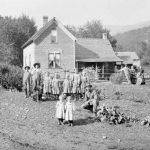
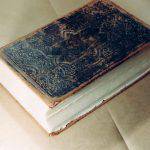
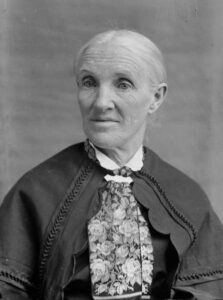
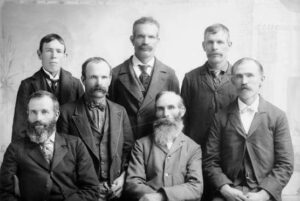
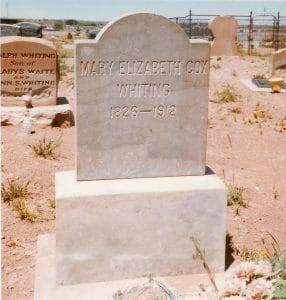
No comment yet, add your voice below!